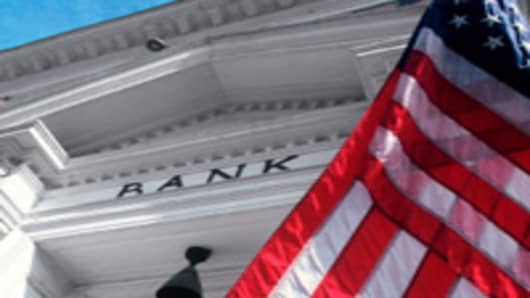New financial services regulations will be so disastrous that Congress will need to repeal them to undo the damage they will cause, banking analyst Dick Bove said Monday.
Calling the proposal "The Anti-American Finance Act," Bove paints a grim picture of its consequences: Millions of consumers losing their bank accounts; costly and needless bureaucracy; an onerous restriction of money growth; and reduced US competitiveness in the global financial system.
"The Congress has created legislation to solve problems that may not exist and has not created legislation to deal with real problems," Bove, of Rochdale Securities, said in a note to clients. "The consequences will be quite negative. The bill is so bad that it is certain to be reversed in subsequent Congressional sessions."
While the proposals have yet to take final form, the legislation calls for more stringent regulation on risk-taking and capital requirementsand establishes consumer protection in ways that Bove calls actually counterproductive.
Congress reacted to public outcry following the collapse of the financial system that started in 2007. A rash of defaults in low-quality loans to homeowners combined with a drop in real estate prices to send the system into freefall and necessitated a public bailout of the sector.
But Bove said lawmakers and policy chiefs have overreacted to the crisis and come up with a set of laws that will ultimately harm the system, the economy and consumers.
"There is no doubt in my mind that in two years, the Congress and regulators will be scrambling to figure out how to undo what they have done with this legislation," he wrote. "Banks need to lend, so money supply can grow. Forcing bank balance sheets to shrink does nothing to aid the United States economy."
Higher capital requirements will shrink the money supply, which in turn will trigger deflation, lower incomes, unemployment and a contracting economy, he said.
"No one who is mandating higher capital in banks is considering this," he said. "In fact, the policymakers are united in their view that the global banking industry needs more capital. It is more likely that the taxpayer is buying a new structure that will be as unworkable as the old one," he wrote.
As for consumers, price controls and increased regulation will force banks to charge fees for routine services, which will be cut as well.
"Millions of people will lose their bank accounts," Bove said. "The cost of banking will go up for everyone as the banks apply monthly maintenance fees to all of their customers. Credit availability will be reduced and credit, which is available, will cost more to everyone."
The only winners in a newly-reformed financial system may be the banks themselves, Bove told CNBC late Monday.
"They’ll get their money," he said. "It may be a lag of six to 12 months, but they’ll get the money back that they lose as a result of this bill."
For investors, this means limiting exposure to banks that are largely consumer-oriented. Better bets, Bove said, are the institutions serving the "commercial customer," like Comerica , Fifth Third, U.S. Bancorp and BB&T.
"Those banks look extraordinarily good at the present time," Bove said.



